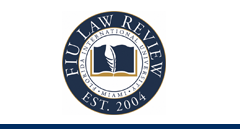Alternate Title
Reforming the Federal Regulatory Review Process
Keywords
Administrative law, Office of Information and Regulatory Affairs (OIRA), Office of Management and Budget (OMB), regulatory policy, benefit-cost analysis, environmental justice, environmental law
Abstract
For decades, the Office of Information and Regulatory Affairs (OIRA) has overseen the development of federal regulatory policies with a strong emphasis on benefit-cost analysis. Despite its conceptual appeal, this analytic tool consistently shortchanges environmental and public health protection, with especially negative consequences for environmental justice communities. In this article, we address some of those shortcomings, focusing in particular on the standard agency practice of arithmetically discounting regulatory costs and benefits that accrue in the future. We propose that the OIRA abandon this practice as it relates to non-market goods, such as human lives saved, and instead work toward a more flexible and holistic approach to regulatory review. In addition, we urge the OIRA to better address environmental justice concerns by placing greater emphasis on distributional and cumulative impacts, highlighting numerous analytic tools that the OIRA could use or adapt in service of that goal. Finally, we discuss ways in which the OIRA could foster a more inclusive and accommodating administrative culture—one more attuned to the needs of environmental justice communities—by reforming both its external and internal processes.
Recommended Citation
Joanne Spalding & Andres Restrepo, Reforming the Federal Regulatory Review Process, 18 FIU L. Rev. 421 (2024), https://doi.org/10.25148/lawrev.18.2.11.





